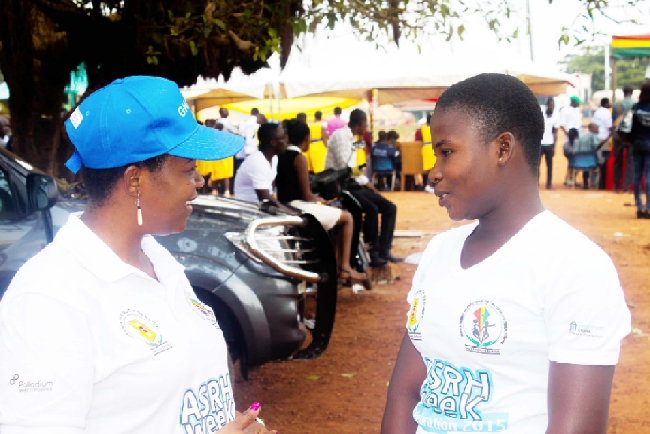
Adolescent Health project sensitises Brong Ahafo youth
More than 77,000 young people in the Brong Ahafo Region received information on sexual reproductive health from January to June this year from the Ghana Adolescent Reproductive Health Project.
Als,o during the same period, more than 63,000 young people received various sexual and reproductive health services through platforms such as adolescent health corners, school health clubs and outreach points.
The project, since its inception in 2014, has supported various capacity-building efforts at all levels for over 6,600 individuals, including programme managers, teachers, healthcare professionals and peer educators.
The Brong Ahafo Regional Representative of Palladium, an international non- governmental organisation, Mr Moses Nanang made this known at a five-day trainer of trainers workshop on adolescent reproductive health for 65 participants in the region.
Goal
The three-year project which is to end in March 2017 is to strengthen the capacity of the government to manage and implement adolescent reproductive health programmes at all levels.
The workshop is being organised by Palladium, in partnership with the School of Public Health of the University of Ghana, and it is also meant to equip partners of the project at the district and regional levels with the requisite knowledge and skills to effectively plan, implement and manage adolescent sexual reproductive health programmes.
Mr Nanang appealed to district health directors to ensure that all adolescent health corners that were refurbished or constructed and equipped by Palladium in their districts were functional.
He said based on Palladium’s partnership with the School of Public Health of the University Ghana, plans were advanced to run annual modular courses on adolescent reproductive health for interested Ghanaians.
Teenage pregnancy
The Deputy Brong Ahafo Regional Director of Health in charge of Public Health, Dr Osei Kuffour Afreh, said teenage pregnancy in the region was very high and that many of the teenagers were put in the family way not only by their peers but also by people in responsible positions.
He said Palladium had supported the region with 54 adolescent health corners to educate adolescents on their health issues, adding that the project needed to be sustained since the adolescent deserved good life.
